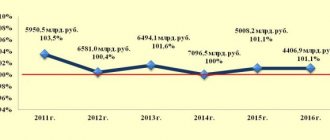Regularly, participants in foreign economic activity, without suspecting or foreseeing it, violate customs rules . This is evidenced by numerous protocols of detentions and decisions on violation of customs rules drawn up by customs control authorities.
It is worth noting that the current legislation provides for both administrative and criminal liability in the area of violation of customs rules. Our customs lawyer will help in protecting your rights in the field of customs legislation.
Principles for imposing liability
Administrative measures are applied when the culprit cannot be brought to criminal punishment. Foreign persons, as well as stateless persons, bear responsibility on equal terms with Russian citizens.
Special consideration should be given to the imposition of punishment on a legal entity. In particular, here it is necessary to separate the responsibility of the legal entity and its employees. If the company itself is punished, this does not relieve its employees from responsibility. Similarly: if a specialist is held accountable, this does not exempt the legal entity from punishment.
Peculiarities of import of certain goods, application of customs duties and customs declaration
Violation of the rules implies the inevitability of punishment. Legal entities are subject to liability regardless of their address, organizational form (LLC, JSC) and other characteristics. The corresponding rule is given in Part 1 of Article 1.4 of the Code of Administrative Offenses of the Russian Federation. In addition, a subject that is in the process of reorganization will not escape punishment. In this case, liability is imposed based on these principles:
- If a legal entity is merged, the penalty is imposed on the newly formed entity.
- If a connection is made, the person connecting is considered responsible.
- If division or separation is carried out, the penalty is imposed on the person to whom all rights and obligations are transferred.
Question: Within the framework of the EAEU Customs Code, what are the current duty-free import rules for online trade? View answer
Another important principle is the principle of innocence. That is, punishment is imposed only on the person whose guilt is proven. The suspect does not have to prove his innocence; this is the duty of the court. All doubts are interpreted in favor of the suspect on the basis of Article 1.5 of the Code of Administrative Offenses of the Russian Federation.
The punishment is established taking into account all the circumstances of a particular case. In particular, all the nuances of a particular case, the identity of the offender, and his financial status are taken into account. However, the upper and lower thresholds of punishment are established by the Code of Administrative Offenses of the Russian Federation. The liability imposed must be within the limits specified by law.
Types of violations of customs rules
- Illegal transportation of goods and vehicles for international transportation across the border of the Customs Union . This offense represents actions in which a person imports or exports goods, as well as hides them when moving them, or simply misinforms the customs authority about the quantity, weight or other characteristics of the declared goods transported across the border of the customs territory.
- Non-declaration, false declaration of goods . In case of non-declaration or false declaration of goods by individuals, the law provides for liability. For example, if you return from a foreign vacation and carry with you alcohol or tobacco in excess of the permitted limits and do not declare them, you will be subject to a corresponding sanction. Non-declaration or false declaration of cash by individuals. This article differs from the previous one only in the subject of the offense: if you are going on vacation abroad and carry cash with you in the amount of more than ten thousand dollars or traveler's checks without declaring them, you will be subject to the appropriate sanction.
- Failure to comply with bans on the import (export) of goods into the customs territory of the Eurasian Economic Union or the Russian Federation and vice versa . In case of non-compliance with the prohibitions established by international treaties when moving them across the border, an appropriate sanction is established in relation to certain goods. This article applies if goods are prohibited or restricted for import and export. For example, extremist literature or poisonous, toxic substances.
- Violation of the customs control zone regime . The above composition represents several subtypes; violation of the customs control zone can be expressed in the movement of goods, persons, or in carrying out economic activities without the permission of the customs authority, for example, opening a duty-free store (duty free).
- Failure to take action in the event of an accident or force majeure . This article makes the carrier liable for failure to take measures to ensure the safety of goods in the event of an accident or natural disaster, but only if the carrier could not prevent such negative consequences. The legislator has established a special procedure for actions in the event that an accident or natural disaster occurs during the transportation of declared goods, and if these actions are not performed, the carrier will face sanctions.
- Submission of invalid documents for customs operations . A violation of this article is the submission by declarants of forged documents or false information, which entailed the receipt of customs or tax benefits: exemption or reduction of customs or tax payments.
- Non-delivery, loss of goods or non-delivery of documents for them . This article is devoted to liability for the loss or shortage of goods or documents during customs transit, that is, along the route of goods from the point of departure to the point of destination.
ATTENTION : watch the video on the topic of disputes with customs and do not forget to subscribe to the YouTube channel to receive free advice from a customs lawyer in the comments to the videos:
- Failure to comply with customs transit procedures . This article of the Code of Administrative Offenses of the Russian Federation is devoted to liability for failure to comply with the deadlines established by the customs authority for goods or documents during customs transit, that is, along the route of goods from the point of departure to the point of destination. Read more about the help of our lawyer in case of non-compliance with the customs transit procedure at the link.
- Destruction or modification of means of identification . This article protects the normal functioning of customs authorities since, due to the destruction, removal, alteration, damage or loss of identification means used by the customs authority, it leads to destabilization and the inability to perform its state functions. More information about the composition and assistance of our administrative lawyer under Art. 16.11 Code of Administrative Offenses of the Russian Federation at the link.
- Failure to comply with deadlines for customs declarations and documents . This article is intended to prevent violations of non-compliance with the deadlines established by law for filing a full customs declaration, provided that the declaration is carried out after the actual export of goods. Moreover, this article establishes liability for failure by persons, including those carrying out activities in the field of customs affairs, to fulfill the obligation to store documents necessary for customs control, the storage of which is mandatory, for example, customs brokers.
- Carrying out transactions with goods without permission or notification of the customs authority . This article provides for liability for committing certain actions without permission or notification of the customs authority. Such operations include unloading, loading, unloading, reloading (transshipment), as well as taking samples of such goods, opening premises or other places where such goods may be located, and replacing a vehicle for international transportation.
- Violation of the procedure for storing goods and operations with them . In case of violation of the storage procedure established by the legislator or the procedure for performing operations with goods under customs control without the permission of the customs authority, as well as the requirements and conditions for placing goods under special customs regime: customs warehouse, temporary storage warehouse, other place of temporary storage, free stock.
- Failure to submit customs reports . This article provides for liability for failure to submit reports, violation of the deadline for submitting reports to the customs authority, and submission of reports containing false information. Customs reporting means not only declarations, but also other documents established by law.
- Violation of temporary storage of goods . By violation of the terms of temporary storage of goods, the legislator means those terms that were determined by the customs authority in a specific document for a given type of goods.
- Submission of inadequate documents for the release of goods before filing a customs declaration . In case of submission of invalid documents for the release of goods before filing a customs declaration, provided that those contained in such documents affect the customs authority’s decision to release goods before filing a customs declaration, the declarant or carrier will be liable. Since this information may affect the release of exported goods.
- Failure to comply with customs procedures . The customs procedure is a specific process that is clearly regulated by law. Therefore, the statement in the goods declaration of false information about them or the presentation of invalid documents, if such information and documents could serve as the basis for placing goods under a customs procedure providing for full or partial exemption from customs duties and taxes or a refund of amounts paid and (or) non-use non-tariff regulation measures. This sanction provides for liability for both citizens and officials.
- Illegal disposal of conditionally released goods . This article is intended to protect the interests of declarants and carriers. Since in the case of the use of goods that were seized during customs control, as well as the use of conditionally released goods, their transfer into possession, use, alienation or disposal in any other way will lead to a violation of the rights of the owners of these goods.
- Illegal use of goods . This article, unlike the previous one, is intended to protect the interests of government bodies. Since in the case of using goods that are illegally transported across the customs border and in respect of which customs duties, taxes have not been paid, or those established by international treaties have not been complied with, they are punishable by law.
- Violation of deadlines for payment of customs duties. In case of violation of the deadlines for payment of customs duties and taxes payable in connection with the movement of goods across the customs border, established by law. The declarant will face sanctions.
- Illegal activities in the field of customs issues. This article provides the elements of offenses that are provided for the performance of customs operations on behalf of the declarant or other interested parties by a person who is not included in the register of customs representatives, or included in the specified register on the basis of invalid documents, or excluded from it. The article is intended to protect the interests of both declarants and officials together with the professional community of brokers.
- Illegal transactions with motor vehicles . This composition, unlike the previous ones, differs in the object of protection: temporarily imported vehicles, violation of the temporary import of cars into the Russian Federation, their transfer into possession or use, sale or disposal in any other way in violation of established restrictions on the use and disposal of such vehicles.
Types of administrative penalties
The key function of imposing punishment is to prevent the occurrence of new violations. Responsibility is established on the basis of the provisions of Chapter 16 of the Code of Administrative Offenses of the Russian Federation. This chapter provides for these remedies:
- Warning.
- Imposition of a fine.
- Revocation of a license required to conduct a specific activity.
- Confiscation of products that are the subject of an offense related to customs regulations.
- Recovery of the cost of products that were illegally transported across the border.
- Confiscation of vehicles through which products were illegally transported.
All measures of administrative liability are listed in Article 3.2 of the Code of Administrative Offenses of the Russian Federation.
Warning
The concept of warning is contained in Article 3.4 of the Code of Administrative Offenses of the Russian Federation. In particular, this is censure of the actions of a sole proprietor or legal entity. It is submitted in writing. A warning and a verbal reprimand are different forms of punishment.
Administrative penalty
The fine is imposed on the basis of Article 3.5 of the Code of Administrative Offenses of the Russian Federation. Assumes the following sizes:
- For individuals – no more than 5,000 rubles.
- For officials – no more than 50,000 rubles.
- For legal entities – 1,000,000 rubles.
The fine can also be expressed in these amounts:
- The cost of the object of violation of the rules (for example, the cost of illegally transported goods).
- The amount of debts of the culprit for taxes, fees, duties.
- Proceeds from the sale of goods that are the subject of an offense.
Part 2 of Article 3.5 of the Code of Administrative Offenses of the Russian Federation states that if a fixed fine is imposed, then its minimum amount is 100 rubles. If a fine is imposed based on the amount of unpaid taxes, the amount of this fine cannot exceed the cost of the object of the offense. The entire fine paid by the violator is sent to the country's budget on the basis of Part 5 of Article 3.5 of the Code of Administrative Offenses of the Russian Federation.
This form of administrative responsibility is the main one. It can be appointed by a representative of the customs structure or a judge.
Confiscation
Confiscation of an object that was directly involved in the offense is carried out on the basis of Part 1 of Article 3.7 of the Code of Administrative Offences. This penalty can only be imposed by a judge.
In what cases is a person exempt from liability?
A person may be released from punishment if the following circumstances exist:
- The violation occurred in a situation of extreme necessity. That is, it was impossible not to break the rules.
- The offender was declared insane.
- The violation was considered insignificant, and therefore the representative of the regulatory body decided to simply issue an oral reprimand. The possibility of recognizing an offense as insignificant is established by Article 2.9 of the Code of Administrative Offenses of the Russian Federation.
- Expiration of the statute of limitations (Article 4.5 of the Code of Administrative Offenses of the Russian Federation).
- Death of a FL (Article 24.5 of the Code of Administrative Offenses of the Russian Federation).
Proceedings cannot begin in the absence of an event or corpus delicti.
FOR YOUR INFORMATION! Administrative punishment can be primary or additional. The main form of influence is a fine, the additional one is confiscation.
IMPORTANT! The statute of limitations for bringing to punishment is 12 months (based on Part 1 of Article 4.5 of the Code of Administrative Offenses of the Russian Federation). If the violation was long-lasting, then the period begins to count from the date the defects were discovered.
What can affect the severity of the punishment
As already mentioned, punishment is imposed based on the totality of all circumstances. That is, there may be mitigating and aggravating circumstances. The former reduce the severity of the punishment, the latter, on the contrary, toughen it.
Emollient
These circumstances may mitigate the liability of the perpetrator:
- The culprit actively helps in the investigation of the case and participates in the work of regulatory authorities.
- He voluntarily eliminates the negative consequences of his actions.
- The reason for the violation of customs rules was difficult personal or family conditions.
- The offense was committed as a result of a threat or coercion to action. Coercion may involve taking advantage of the financial dependence of one’s subordinates.
- The offense was committed by a minor, a pregnant woman or a mother with a child under one year old.
Other circumstances may also be mitigating. For example, this may be the commission of an offense under the influence of natural circumstances.
Aggravating
The punishment will be increased if these circumstances are discovered:
- The culprit did not heed the demands and continued his illegal activities.
- The person repeatedly violated the rules during the year.
- The culprit had previously been prosecuted for smuggling.
- The offense involved a person under 18 years of age.
- The offense was committed with the participation of a group of people.
- The culprit was drunk.
In the process of bringing the culprit to justice, all circumstances are studied. If the offense was insignificant, there are many mitigating circumstances, then the punishment may be completely canceled.
Lawyer for violations of customs rules in Yekaterinburg
Our smuggling lawyer will provide you with qualified legal assistance in the event of a criminal case being initiated in this area.
If an illegal decision on an administrative offense is made against you, our customs lawyer is ready to appeal such a decision and seek a fair solution to your problem, violation of customs rules does not always lead to severe punishment (read about the work of a lawyer in the field of customs disputes at the link). Officials do not always explain your rights to you when drawing up decisions on an administrative violation:
ATTENTION: the period for appealing the decision is 10 days from the date of its issuance. Also, by virtue of current legislation, a period for voluntary execution of punishment is provided, which is 60 days. Do not miss the deadlines if you violate customs rules because... restoring them is a troublesome process.







